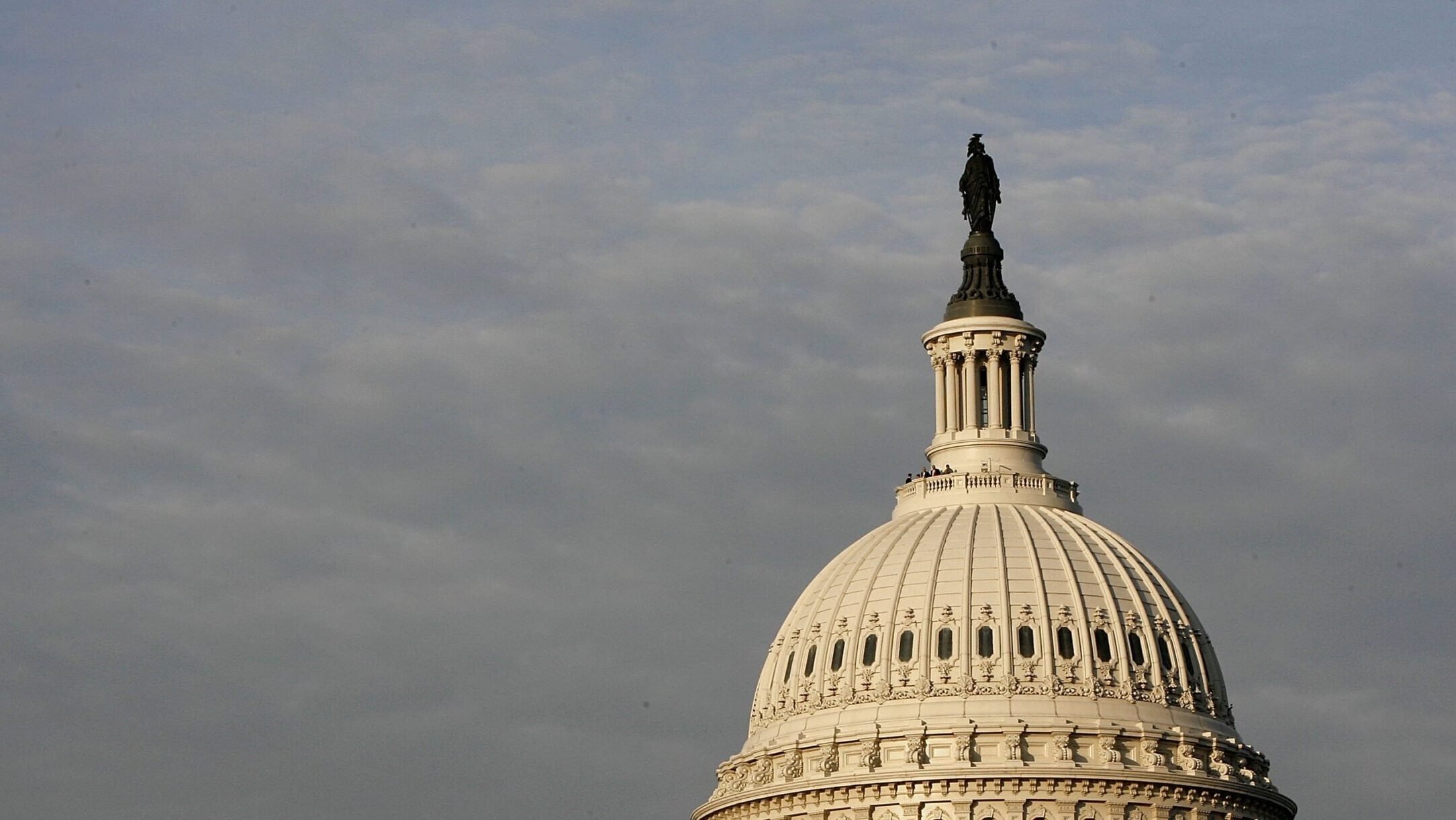[ad_1]

The early morning sun strikes the U.S. Capitol November 6, 2006 in Washington, DC. Midterm elections take place November 7, potentially changing the balance of power in the nation’s capital. (Photo by Win McNamee/Getty Images)
WASHINGTON: The Senate Armed Services Committee (SASC) today released the text of its annual defense policy bill, boosting the department’s procurement and research funds by billions over its budget request.
The SASC version of the fiscal 2023 National Defense Authorization Act would authorize a $45 billion increase in defense spending over the budget request, to a total of $847 billion, at a time when high inflation is eating into the Pentagon’s coffers, the US is contending with an increasingly aggressive China and the Pentagon is shipping weapons to Ukraine amid Russia’s invasion of the country.
In a statement, SASC chairman Sen. Jack Reed called the bill an “important step forward.”
“From China’s emergence as our most consequential strategic competitor to Russia’s assault on Ukraine, the challenges before us are momentous,” he said. “With broad, bipartisan support this year’s NDAA increases funding for our national defense, invests in the platforms and infrastructure our military needs, and delivers critical resources for our allies and partners around the globe.”
SASC’s version of the NDAA appears to closely follow a summary of the legislation released last month, and gives the Pentagon about $158 billion in procurement, up from $144.2 billion in the Pentagon’s ask. Congress increased funds for combat aircraft, Navy and Marine Corps vessels, armored vehicles, munitions, and short- and long-range fires, according to last month’s bill summary.
The bill authorizes $137.7 billion in research, development, test and evaluation funds, more than $7.5 billion over the budget request. That spending “supports” the Army’s modernization efforts on long-range fires, future vertical lift, next-generation combat vehicle, and air and missile defense.
The RDT&E account also authorizes spending increases for microelectronics and hypersonics. That includes approximately $300 million for the Pentagon’s glide-phase interceptor initiative, which the head of the Missile Defense Agency has said is still in the early stages of R&D. It also provides an additional $25 million for research into sea-launched cruise missiles — a potentially controversial provision considering the Biden administration’s opposition to the program.
The legislation also provides $800 million in funding for the Ukraine Security Assistance Fund. On Friday, the US sent another $400 million of weapons to the embattled country, bringing total US security aid for the Ukrainians to $8 billion since the start of the Biden administration. In the committee’s bill report, it underscored the importance of boosting funding for the Ukrainians.
“The committee recognizes the dynamic nature of the security situation in Ukraine requires that the Department have a variety of authorities at its disposal to support Ukraine’s Armed Forces,” the committee wrote. “The Ukraine Security Assistance Initiative (USAI) is essential, both in the immediate fight against Russia aggression and as part of the longer-term effort to support the Ukrainian government’s efforts to rebuild and enhance the military capabilities needed to maintain their sovereignty and defend their territory.”
In the Pacific, the NDAA boosts authorized funding for the Pacific Deterrence Initiative by $1.1 billion “for unfunded requirements identified by the Commander of U.S. Indo-Pacific Command.” Additionally, it authorizes $245 million for Joint All-Domain Command and Control, including a joint force headquarters in the Indo-Pacific, according to last month’s summary.
RELATED: Lawmakers want clarity on JADC2 efforts: Who’s getting what, when?
Sen. Jim Inhofe, who is retiring early next year and for whom the bill is named, said in a statement that he hopes “the Senate acts with a sense of urgency on the NDAA.”
“With the Chinese Communist Party accelerating the already historic modernization of its military, Russia continuing to destabilize security in Europe, and record-high inflation jeopardizing our buying power, Congress must do everything we can to give our military every advantage on the battlefield,” the ranking member said.
Late last week, the House of Representatives passed its version of the NDAA with a topline number of $839 billion. Once the Senate votes on its version, legislators will hash out their differences in conference committee.
[ad_2]




